 News Staff
News Staff![]() -
August 12, 2022 -
News -
Wild Fires 2022
Europe burns
-
3.8K views -
0 Comments -
0 Likes -
0 Reviews
-
August 12, 2022 -
News -
Wild Fires 2022
Europe burns
-
3.8K views -
0 Comments -
0 Likes -
0 Reviews
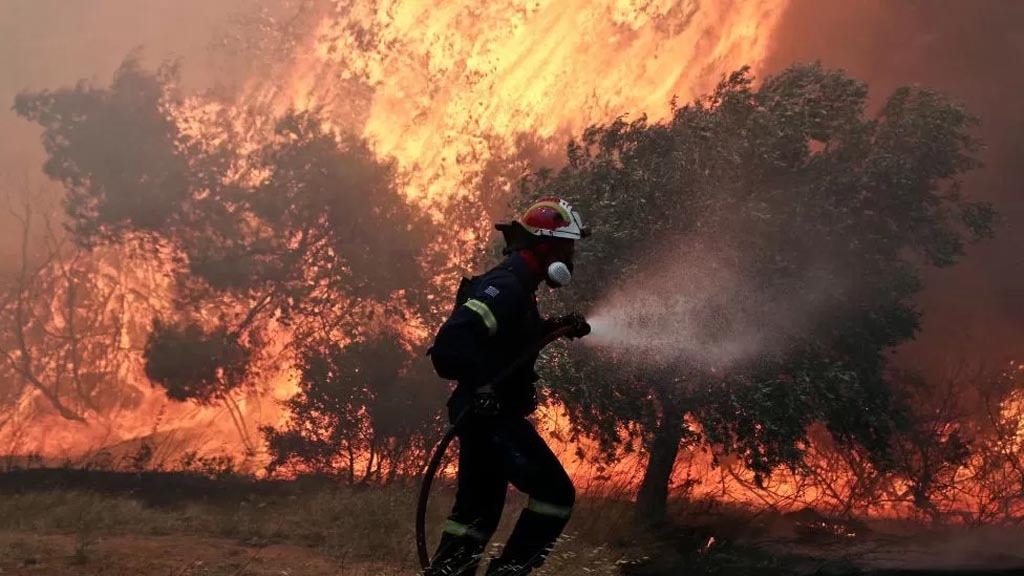
JTFMax:
The United States and Europe are facing massive fires. According to scientists, the World is on Fire 2022 will be the year of a megadrought. Aridification has led to more fires than ever. More than 24,000 fires will be reported in the West in 2022 - more than double what they were in 2010.
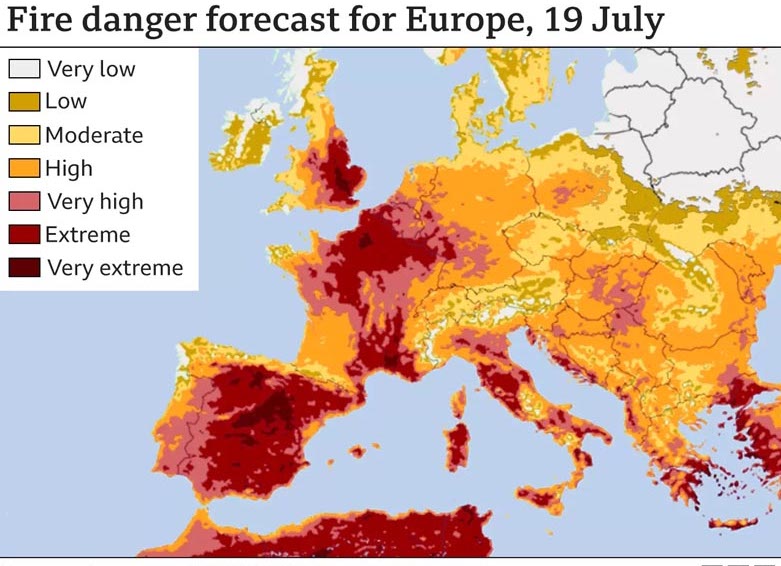
Amid America's Wildfires, one of the most famous national parks in the World, Yosemite Park with its Sequoia Trees Grove, is now facing a massive fire. While the fire destroyed many trees in the park, there were no fatalities, and authorities do not believe the fire was intentionally set. A spokesperson for the Sierra National Forest says containment lines are holding. According to Garrett Dickman, a park-forest ecologist, the fire's survival is primarily due to periodic intentional burns of the undergrowth.
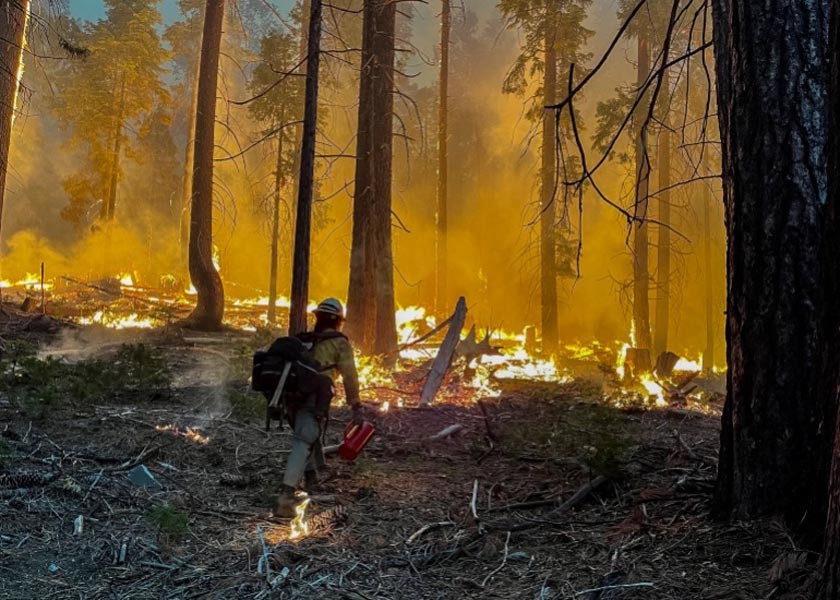
Despite the high levels of smoke and dust, visitors did not turn away. Even with an air quality index close to 250 - very unhealthy - cars zigzagged through the park carrying bikes and inner tubes. Many visitors continued to picnic, trek, or even float in the river. Despite the high risk for health, many visitors still managed to enjoy the park. In the campgrounds throughout the valley, tents were lining the roads. Emergency vehicles crisscrossed the roads, and people piled into shuttle buses.
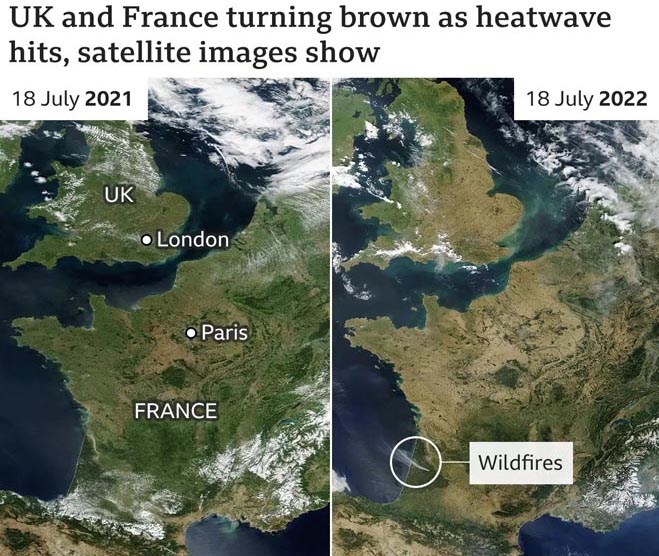
Wildfires have increased significantly in Europe this summer, with the region's country forests burning the second largest area on record. As of July 16, the area burned in Europe was almost 1.8 million hectares or 5 million acres. But the reasons for the increased fire activity are not just limited to climate change. Economic factors are also contributing to the problem. For example, Morocco's rural population has declined dramatically, leaving less labor to maintain and clear the forest and other vegetation.
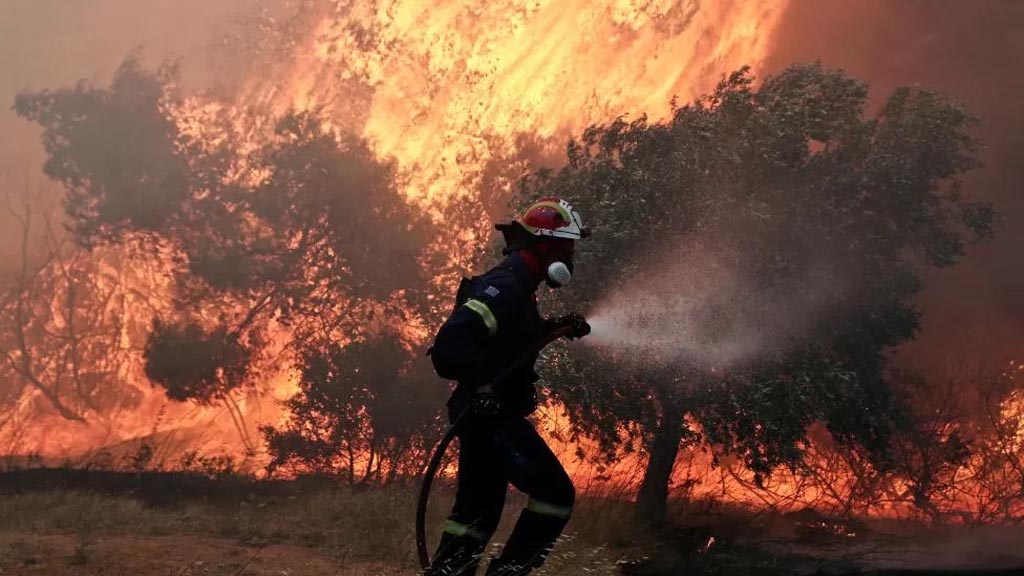
Thousands of firefighters are battling the blazes in France and elsewhere. However, the winds, high temperatures, and arid conditions hamper their efforts—the second fire, known as "Landiras," in Greece. The Gironde region of southern France has been ravaged by wildfires - the first such blazes in decades. They have scorched 20,000 hectares of bone-dry heathland and forest. While these fires are rarely intentional, the reasons for the recent outbreak are mainly human, including high levels of drought and intense, erratic winds. The situation in France is far different than that in Australia during its 'Black Summer' bushfire season, where more than 50 000 ha of forest was burned in one year.
On Tuesday, England and southern Britain had temperatures as high as 40 degrees Celsius. As a result, some regions in England and Wales were under a heat wave warning. Coningsby, in eastern England, was the site of the country's highest recorded temperature - 40.3 degrees Celsius (104 degrees Fahrenheit). The heatwave has forced thousands to evacuate their homes and evacuate. So far, more than 1,000 grass fires have disappeared in the city. A significant cause of these fires is disposable barbecues. Fire Commissioner Andy Roe has called for a ban on these flammable barbecues, likely worsening the situation.
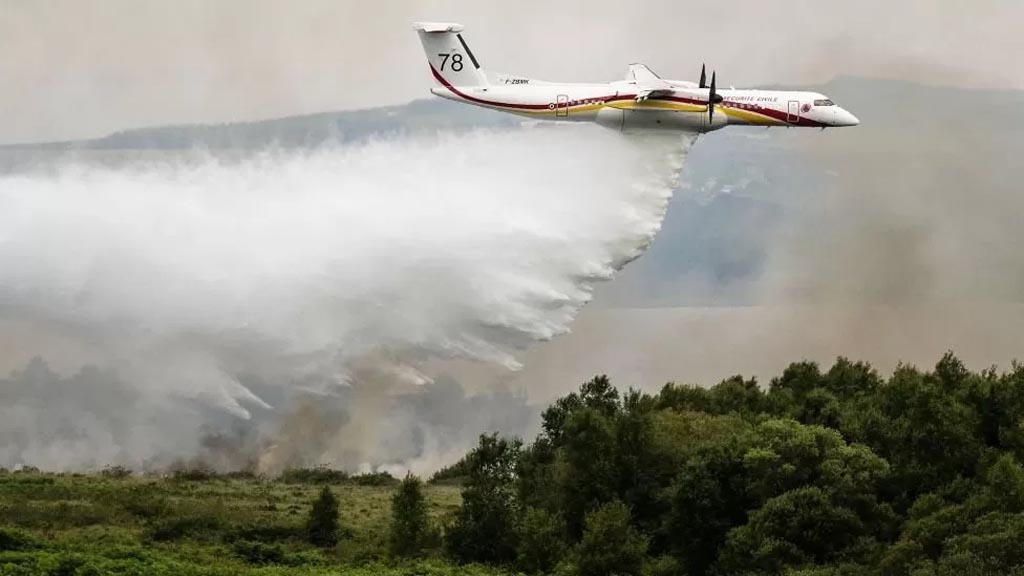
The Intergovernmental Panel on Climate Change (IPCC) has released a new report called Climate-Change 2022. The report assesses current and future risks associated with climate change. In addition, the report highlights how human-induced climate change is disrupting nature and affecting billions of people around the World. Despite our best efforts, we cannot stop climate change from happening and must act to curb its impacts.

Desert Local News is an invitation-only, members-based publication built on fact-checked, non-biased journalism.
All articles are publicly visible and free to read, but participation is reserved for members—comments and discussion require an invitation to join.
We cover local, state, and world news with clarity and context, free from political agendas, outrage, or misinformation.